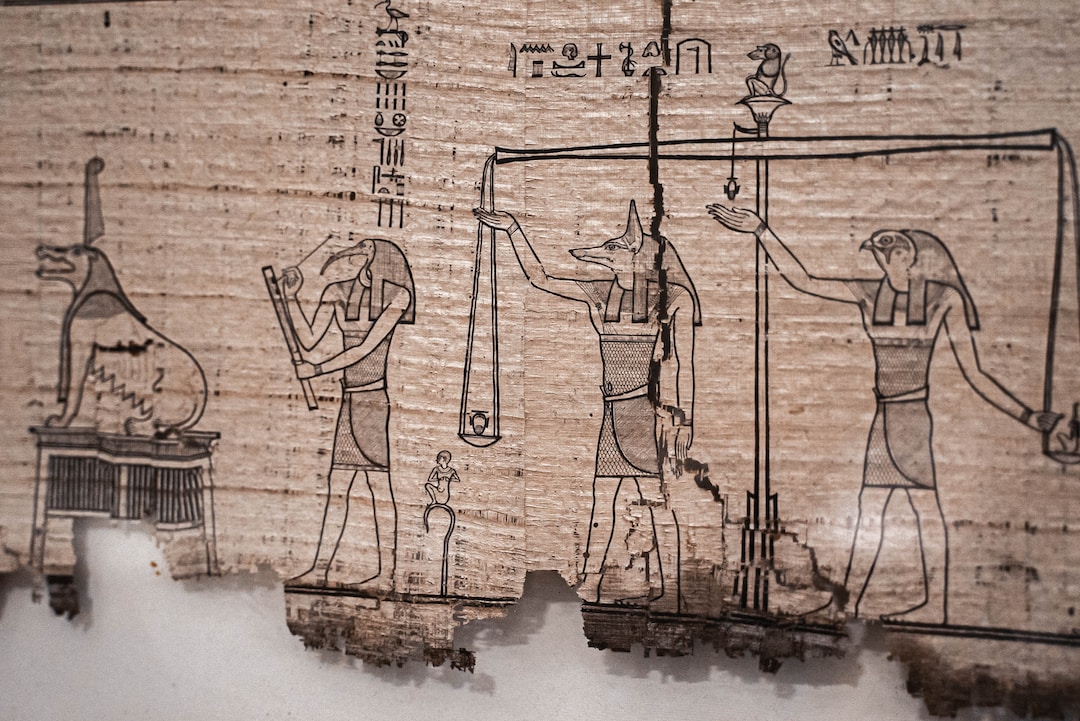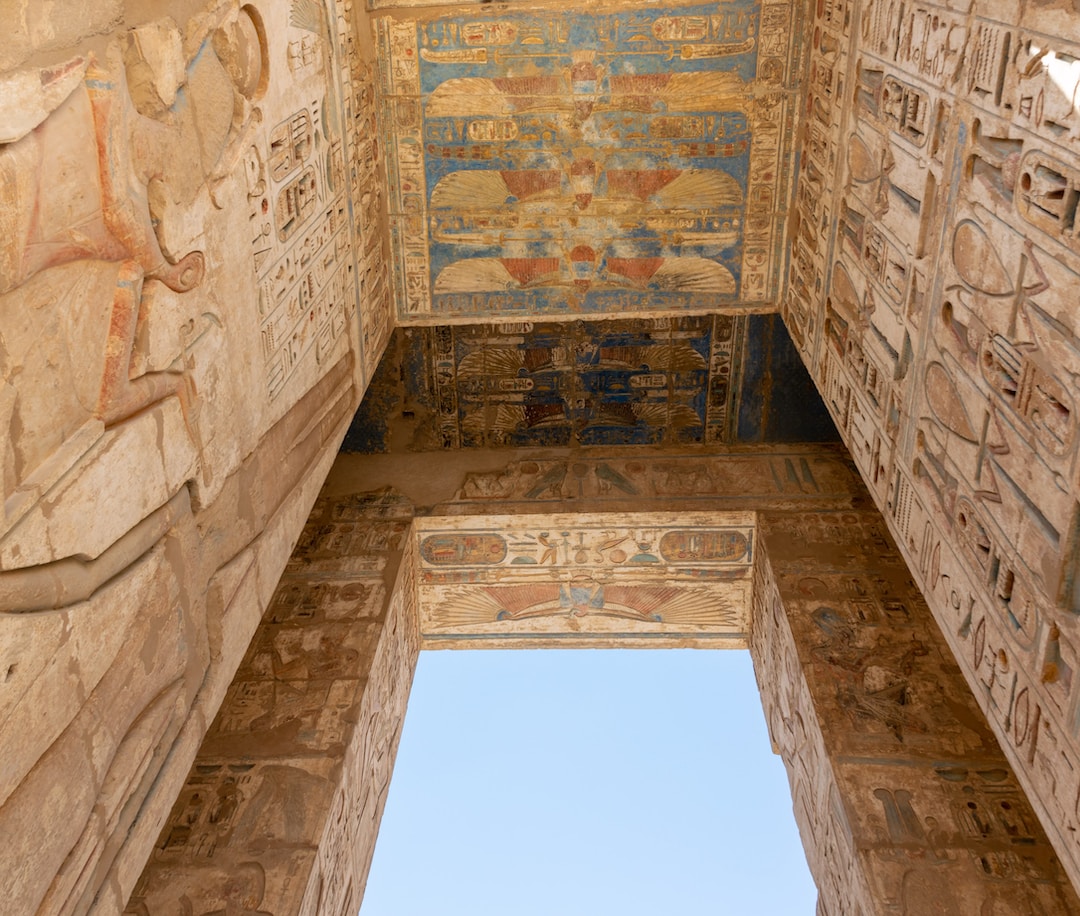Hermetic philosophy, true nature of reality, and the Shifting of Consciousness

The Egyptian god Thoth, an ibis-headed figure holding a writing instrument, was revered in Hermetic tradition as the source of all wisdom. As a man-god, he taught the Egyptians about astronomy, architecture, geometry, medicine, and religion. From this advanced knowledge marvels like the Giza Pyramid came into being. The Greek term for Thoth is Hermes, which is also the name of Hermes Trismegistus, the "Thrice Great Hermes," the greatest king, philosopher, and priest of all time.
Since the Egyptians did not adhere to materialism, they incorporated spiritual concepts and understandings into their scientific practices. Alchemy, therefore, merged chemistry with the belief that everything, including consciousness, could be transformed. They held the idea that "All is Mind" is embodied in the Principle of Mentalism, which is fundamental to Hermeticism. Everything that occurs is the result of a previous state of mind. Thoughts had to form before anything could exist; these thoughts then materialized as reality. This old idea is supported by some of the most well-known contemporary physicists.
The Mind-Stuff Theory: Exploring the Consciousness Behind the Universe

According to physicist Max Planck, "There is only one force that causes all matter to originate and exist." We have to presume that there is a conscious, sentient mind operating behind this force. The matrix of all matter is this mind. Planck got the Nobel Prize in physics in 1918 for coming up with quantum theory.
Sir Arthur Eddington, a physicist at Cambridge, wrote, "The universe is like a thought or feeling in a universal mind." To put it bluntly, "the stuff of the world is mind-stuff."
During World War I, Albert Einstein and Sir Arthur worked together to prove Einstein's new theory about gravity. Einstein and Eddington is a great movie that was made about this. (I put a link in the section called "Recommended.") Eddington was known for being able to explain relativity in easy-to-understand terms. His lectures on the subject were put together in a book called The Mathematical Theory of Relativity, which Albert Einstein called "the finest presentation of the subject in any language."
Albert Einstein and Stephen Hawking both said that science is a way to try to figure out how God thinks. After studying hermeticism, Copernicus made his important claim that the sun, not the earth, was the center of our solar system.
The first principle of Hermeticism is the Principle of Mentalism, as stated in a text called The Kybalion: “The All is Mind; the Universe is Mental.” This perspective is based on the belief that our thoughts have the ability to influence the physical world, including our compulsions, addictions, moods, and attitudes. By considering ourselves as individual holograms of a unified Mind, we may possess more power over ourselves and the world than we can comprehend. This leads us to the sixth principle of Hermeticism, known as the Law of Cause and Effect. The outcomes of our thoughts shape the world and determine our actions within it. Can our way of thinking truly move mountains?
The Power of Self-Realization and Personal Agency
Neo asks Morpheus in The Matrix, "What are you trying to tell me?" That I can avoid getting hit?" Morpheus says, "No, Neo, I'm trying to tell you that when you're ready, you won't have to." Maybe we are ready when we know who we really are, which is a part of the Divine. But the prevailing philosophy of determinism says that we have no choice, that we are victims of our circumstances, that we are just pawns in the game of life, and that our choice is an illusion. But the Hermeticists, who rose to a higher plane of existence, learned to control their moods, compulsions, obsessions, and the world around them by operating from a higher plane of existence and rising above what seems to be a deterministic prison. They became players instead of being played by their internalized demiurge or tossed back and forth by other people's wills and goals.
If you change the way you think, you can change the world. Even though it sounds easy, we all know it's not. Base metal can be turned into gold, which is a metaphor for mental mastery. It is not easy, but it is possible.
Victor Frankl, the author of “Man’s Search for Meaning,” was a psychiatrist who survived the Holocaust. His story demonstrates that while we cannot always avoid adversity, we can still maintain a healthy state of mind. When he lost everything in the camp, it was not due to luck. In the camp, everyone experienced profound loss, but they still retained the ability to choose their emotional state. Frankl made the conscious decision to find meaning in writing a paper, and this act of willpower ultimately saved his life. He did not manage to evade the metaphorical bullet, but he didn’t need to. He lived long enough to understand Nietzsche’s philosophy that “what doesn’t kill us makes us stronger,” yet he remains humble enough to acknowledge that “the best of us did not survive.”
When I was feeling down, I once picked up a book in an attempt to find some uplifting words. It was a rather crude approach to seeking solace. However, my eyes immediately gravitated towards a line from Milton’s Paradise Lost: “The mind is its own place, and by itself can make a heaven of hell, a hell of heaven.” This made me ponder why rich people often struggle despite their wealth, while Victor Frankl was able to find meaning even in Auschwitz. The answer lies in the mind’s ability to create either bliss or torment, regardless of external circumstances.
Conclusion
The passage had a significant impact on me. After a while, I closed the book and switched on the TV. Surprisingly, someone was reading the exact same passage at that very moment. It was another one of Jung’s remarkable synchronicities, those meaningful coincidences that occur in a seemingly meaningless world. In a world devoid of meaning, we can compensate for this absence by tapping into the higher levels of our transcendent mental abilities.
FAQ
Q: What is Hermeticism?
A: Hermeticism is a spiritual and philosophical tradition that dates back to ancient Egypt and Greece. It is based on the teachings attributed to Hermes Trismegistus, a legendary figure known as the "Thrice-Greatest Hermes." Hermeticism encompasses a wide range of esoteric knowledge and practices, including the exploration of the nature of reality, the principles of manifestation, and the shifting of consciousness.
Q: What are the Seven Hermetic Principles?
A: The Seven Hermetic Principles, also known as the Seven Laws of Hermes, are the fundamental principles that govern the workings of the universe according to Hermetic philosophy. These principles include the Principle of Mentalism, the Principle of Correspondence, the Principle of Vibration, the Principle of Polarity, the Principle of Rhythm, the Principle of Cause and Effect, and the Principle of Gender.
Q: What is the Principle of Mentalism?
A: The Principle of Mentalism states that "All is Mind." It suggests that the universe and everything within it is ultimately a mental creation. According to this principle, consciousness is the foundation of reality, and all phenomena are a product of the mind.
Q: What is the Principle of Correspondence?
A: The Principle of Correspondence states that there is a correspondence between the various planes of existence. This means that there are similarities and connections between the physical, mental, and spiritual realms. As above, so below.
Q: What is the Principle of Vibration?
A: The Principle of Vibration states that everything in the universe is in a state of vibration. This principle suggests that everything is in constant motion and that different levels of vibration create different forms and manifestations.
Q: What is the Principle of Polarity?
A: The Principle of Polarity states that everything has two opposing poles or aspects. These poles are not separate, but rather different degrees of the same thing. For example, hot and cold are not separate entities but two extremes of temperature.
Q: What is the Principle of Rhythm?
A: The Principle of Rhythm states that everything in the universe operates in a rhythmic pattern. This principle suggests that there are cycles, patterns, and rhythms that govern all aspects of existence.
Q: What is the Principle of Cause and Effect?
A: The Principle of Cause and Effect states that every action has a corresponding reaction. It suggests that there is a cause for every effect and that every effect becomes the cause of something else, creating an endless chain of cause and effect.
Q: What is the Principle of Gender?
A: The Principle of Gender states that everything in the universe has masculine and feminine aspects. These aspects are not limited to gender but represent different qualities and energies. The principle suggests that the balance and harmonization of these energies are essential for creation and manifestation.
Q: How can the principles of Hermeticism help in the shifting of consciousness?
A: The principles of Hermeticism provide a framework for understanding the nature of reality and our place within it. By exploring these principles and applying them in our lives, we can gain insight into the workings of the mind, the power of thought, and the nature of manifestation. This understanding can lead to a shift in consciousness and the realization of our true nature and potential.
Q: Are there any ancient texts or literature that discuss Hermeticism?
A: Yes, there are several ancient texts and literature that discuss Hermeticism. One of the most famous is the "Corpus Hermeticum," a collection of texts attributed to Hermes Trismegistus. These texts contain profound teachings on various topics, including the nature of the divine, the transmutation of consciousness, and the secrets of the universe.
Q: How can the study of Hermeticism contribute to self-mastery?
A: The study of Hermeticism can contribute to self-mastery by providing valuable insights into the workings of the mind and consciousness. By understanding and applying the principles of Hermeticism, individuals can gain greater control over their thoughts, emotions, and actions. This self-mastery allows for personal growth, transformation, and the realization of one's true potential.
